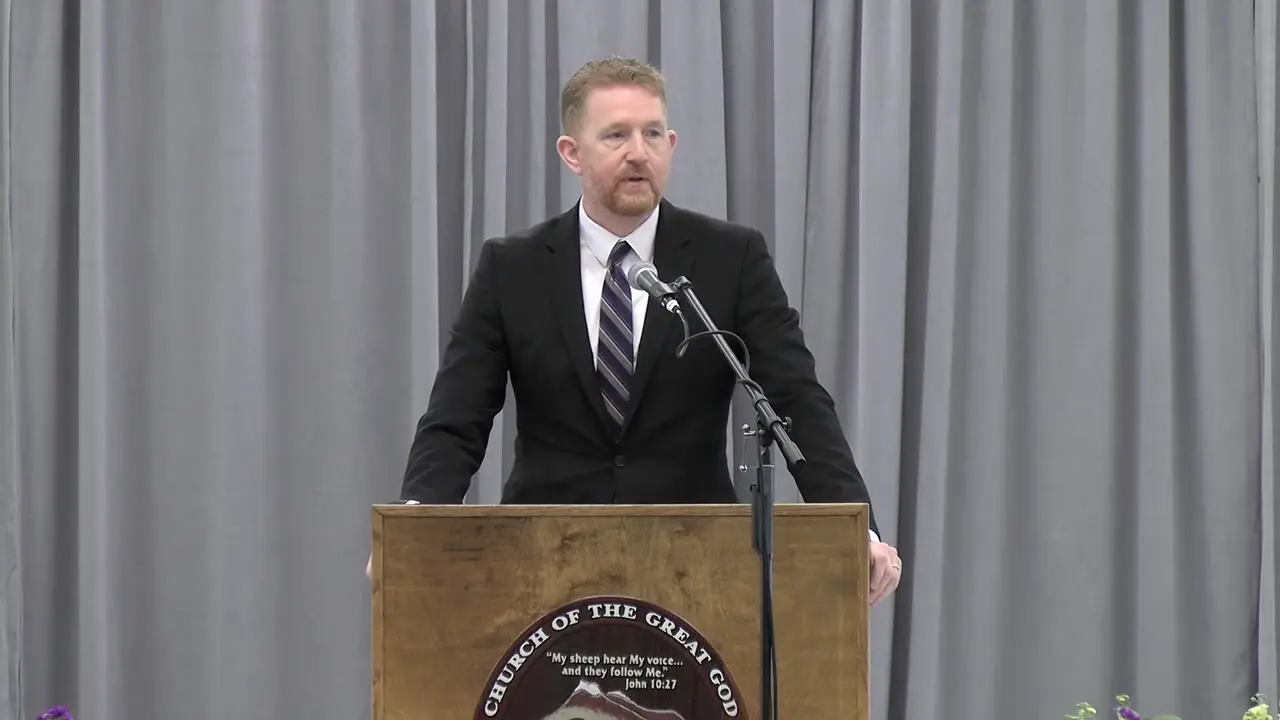Filter by Categories
God's Holy Days - Our Shared Vision Of Hope
Feast of Tabernacles Sermon by Mark SchindlerFrom Passover to Pentecost to Trumpets to Atonement to the Feast of Tabernacles, these days should solidify our vision of he Father, Jesus, and one another.
Are God's Holy Days To Be Kept Today?
Sermon/Bible Study by Martin G. CollinsIf we do not keep God's holy days, we will deprive ourselves of the knowledge of God's purpose. Jesus and the first century church observed and upheld these days.

The Feasts of Tabernacles and Unleavened Bread
Feast of Tabernacles Sermon by David C. GrabbeIn this message, we learn the divine wisdom and unity within Almighty God's festivals (Leviticus 23) showing how each feast reveals His character, plan, and purpose for humankind. The speaker, using the method of comparison and contrast, exposes a chiastic structure or mirrored design connecting the spring and fall festivals, particularly Unleavened Bread and Tabernacles, both centering on deliverance, dwelling, and dependence on God, forming a complete picture of salvation through Christ. The pattern of one day followed by seven (Passover/Unleavened Bread) and seven days followed by one (Tabernacles/Last Great Day) symbolized the perfection and symmetry of His redemptive plan. Unleavened Bread focuses upon cleansing, sincerity, and feeding on Christ, the Bread of Life. Consequently, when we remove food from our dwellings, we purify every sphere of authority under God, thereby building a stable spiritual house upon Christ. Tabernacles, in contrast, emphasizes impermanence and humility, dwelling in temporary booths, reminding us of our dependence on God's daily provision in the wilderness. Together the permanence of houses and the transience of booths teach us that true security lies not in possessions or comfort but in Almighty God's sustaining presence. The physical symbols of food and dwelling illustrate some divine paradoxes. During Unleavened Bread, food lacks leaven—self-sufficiency and sin—but during Tabernacles, housing lacks permanence—worldly security and control. Through abundance and lack, permanence and transience, God's people learn to dwell in His presence, feed on His Word, and trust His timing.
How to Have a Great Feast
Sermon by Richard T. RitenbaughThe Feasts of God are not vacations, but are holy convocations when God assembles His family for the purpose of enabling us to learn to fear and honor Him.

Amos 5 and the Feast of Tabernacles
'Personal' from John W. RitenbaughHow can we evaluate whether our Feast is 'good' or not? God's criticism of Israel's feasts in Amos 5 teaches what God wants us to learn from His feasts.

Jesus in the Feasts (Part One): The Bread of Life
Sermon by Richard T. RitenbaughEven though the prophetic significance of the Holy Days outlines the the plan of God, the work of Jesus Christ in each event is even more significant.
What Makes for a Good Feast of Tabernacles?
Sermonette by David C. GrabbeGod commands us to dwell in temporary booths for seven days. As the green leaves change colors, celebrants cannot help but reflect on the brevity of life.
God's Will
Feast of Tabernacles Sermon by Richard T. RitenbaughPraying according to God's will is sometimes ambiguous. Yet as we respond positively to His covenant, He reveals more and more of His secret plans.
The Reality of the Feast
Sermon by Mark SchindlerUnless we anchor ourselves in God's precepts, we are in danger of succumbing to deadly deception. We must treat God's Holy Days as sanctified times.
Are the Blood Moons Significant? (Part Three)
CGG Weekly by David C. GrabbeIt is unusual for lunar eclipses to occur on God's holy days. Understanding those days helps us to find the right significance to the blood moons.
Holy Convocations
Sermonette by Ronny H. GrahamThe term "holy convocation" is repeated ten times in Leviticus 23, indicating that God places utmost importance on fellowship with siblings in the faith.

Unleavened Bread Basics
Sermon by David C. GrabbeThe Feast of Unleavened Bread memorializes God's deliverance from the environment of sin rather than our coming out of sin. Christ embodies sincerity and truth.
The First Day of Unleavened Bread (Part One)
Sermon by John W. RitenbaughPassover takes place at twilight as the 14th of Abib begins. Unleavened Bread begins 24 hours later on the 15th of Abib. The Passover is a preparation day.

Holy Days: Passover
Bible Study by Earl L. HennPassover may be the most important festival ordained by God. Not only does it memorialize Christ's death, it also symbolizes our redemption and the covenant.